THIS ABSOLUTELY BEAUTIFUL, 1963 PORSCHE 356C HAS BEEN MAINTAINED BY MIDWEST PERFORMANCE CARS FOR 8 YEARS!



You and your car have survived the Chicago Winter and we should be all finished with any real snow and ice. Now is the right time to bring your vehicle in for a Spring Service. Winter is very hard on many components of your car and some wear or damage to important components may have occurred. If your car has been safely stored away for the winter, it is a good idea to have it gone through before the fun driving season begins.
It goes without saying that spring and summer are very different environments in which your car must operate in than winter is. While generally easier on the equipment, each season does present its own set of challenges. Spring brings a lot of rain and wet driving conditions. This stresses electrical components, tires and drains among other systems. Contact Midwest Performance Cars today to schedule an appointment for your Spring Maintenance. Below are a few of the things we will check for spring as well as a few recommendations:

Spring Service Package – There are a few high quality additives that we recommend periodically adding to your oil and fuel systems in order to remove contaminants and to reduce wear. We have bundled three of the best into a Spring Service Package. All three products come from the highly respected German company Liqui Molly. “Engine Flush” is added to the engine and run for a few minutes just prior to an oil change – this removes contaminants from the oil circuit. After the oil change, we recommend “Cera Tec” which adds a ceramic coating to the metal and reduces both wear and friction. This service should be completed every 30,000 miles. Finally we recommend “Jectron” to keep the fuel injection systems clean. With our Spring Service Special we combine these three great services into a package at a considerably reduced price.
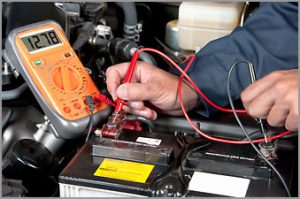
Battery – Winter is hard on your starting system components – battery, alternator and starter. The cold puts a high load on this system in order to turn over your motor filled with cold, thick oil. MPC will check this system to make sure it is still on good order. Signs that your battery is failing include hard starting, warning lights, dimming headlights and interior lights, and slow power windows.
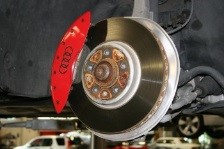
Brakes – Salt, slush and ice get packed into your wheels and brakes during the winter. This can corrode your brake components – pads, rotors, brake lines, and ABS systems. Signs that your brakes need attention include pulling to one side, warning lights, a soft brake pedal, and squealing or grinding noise upon application.
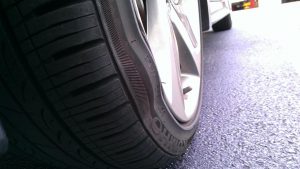
Tires – Those of you that have one set of tires for all year should have them checked out in the Spring. Spinning your wheels on ice trying to get out of your parking spot, alley, or garage can do a lot of damage to your tires. See this terrific article from Car Talk: Car Talk on Winter Tire Damage. Further, hitting potholes (hard not to do in Chicago Winters) can cause sidewall bulges or cracked/broken wheels. Either of these is unsafe and should be replaced immediately. We will check your tires for dry-rot – rubber cracks as it ages and old (5 years or more) tires will start to dry out and crack from the inside out. Finally, MPC will set your tire pressures. Tire pressures will change as the temperature outside changes so you should always have your pressures checked in the spring.
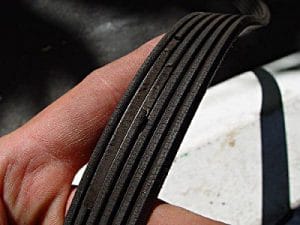
Belts and Hoses – The cold and salt will also age rubber parts in your engine such as belts and hoses. As the rubber ages, belts will start to peel and crack and hoses will get soft. Blowing a hose in your cooling system will cause your car to overheat and you will need a tow. Similarly, a broken belt can cause many issues from a loss of power steering to overheating. Midwest Performance Cars will check your belts and hoses to make sure you are ready to enjoy spring driving.
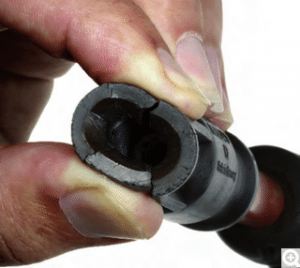
Spark Plug Wires & Coils – Both rubber spark plug wires and plastic coils will crack with age and heat. Often in the rainy spring weather, the humidity in the air will cause these cracks to develop into shorts which will result in misfires, hard starts or no starts.
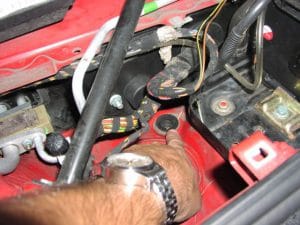
Drains – This is an important maintenance item that is overlooked by many shops and dealerships. Most vehicles have drains in the front cowling, doors, and sunroofs. These can get blocked up with leaves and other debris. When the drains are plugged up, water will often back up into the cabin on the floors and/or into the dash. These areas usually are full of electronic control modules that get damaged with water intrusion. We too often see vehicles with damaged, expensive control modules and moldy wet carpeting caused by something as simple as plugged drains.
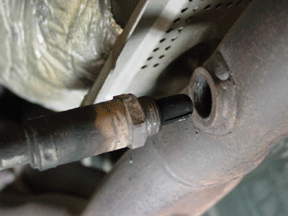
Oxygen Sensors – These are one of the most common causes for a Check Engine Light to come on. There are often multiple oxygen sensors in today’s European cars, but they all work the same way. The oxygen sensor measures the unburnt oxygen in the exhaust stream and allows the vehicle’s fuel management to add or reduce fuel flow in order to maintain the perfect mixture. If your oxygen sensor(s) malfunction, the fuel management will often provide too much gas (rich mixture) and can reduce your mileage by up to 40% according to the auto repair website, CarMD. Running too rich can also damage your catalytic converter which is an expensive component of your vehicle. Oxygen sensors typically need replacing every 30,000 to 50,000 miles.
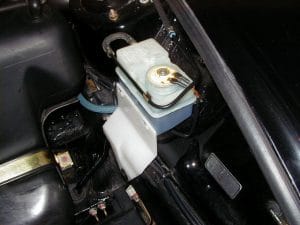
Fluids – It is always important to check all your fluids to make sure they are topped up and fresh.
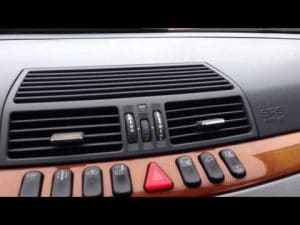
A/C System – It is a good idea to check out your A/C system before you really need it. The cold of the winter can shrink seals and cause your Freon to leak out. Turn your A/C on to max and see if it is working. If it is not, give Midwest Performance Cars a call to schedule an appointment.
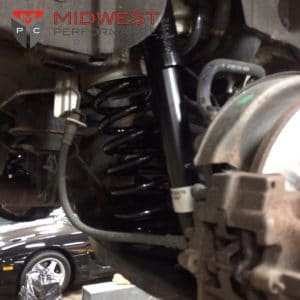
Suspension & Alignment – If you drive in Chicago in the winter, you are going to hit potholes – we all have to pretty much accept that. However, potholes are very hard on your car’s shocks, struts, bushings and alignment. At MPC we will thoroughly check your suspension and make sure no damage occurred during “pothole season”.
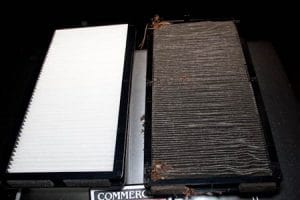
Cabin Filter – The cabin filter removes contaminants from the air inside the passenger cabin. If the filter is blocked or dirty, irritants such as dust and pollen can circulate in your cabin. This is particularly troublesome if you or anyone in your family suffers from allergies. Midwest Performance Cars will check your cabin filter every time your car is in for service.
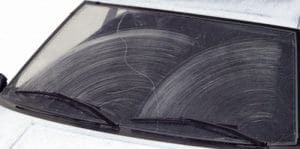
Wiper Blades – Winter often destroys wiper blades, we will check them out for you.
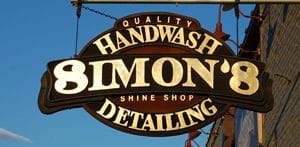
Car/Undercarriage Wash – Removing all the salt and road debris that accumulated on your vehicle over the winter is an important maintenance task. Underneath your car, the salt and muck causes the components to rust. On the top, washing the car thoroughly and even treating your car to a good wax job will prolong the life of your paint. Midwest Performance Cars will wash your car with each service, however we recommend going to your favorite detail shop for a wax and undercarriage wash. We recommend Simon’s Shine Shop in Lincoln Park at 1439 W. Shakespeare, (773) 348-2000.
There are a lot of different opinions and misconceptions regarding the need for periodic brake fluid flushes. Do you need this service? How often? Why?
Most European car manufacturers recommend having your brake fluid flushed every two years. Brake fluid is hygroscopic which means it attracts and holds water molecules. Water will be absorbed right out of the air, and as brake fluid ages it will promote corrosion in many of the hydraulic components found in the braking system. In addition, the seals and hoses used in the braking system slowly deteriorate causing small rubber particles to be suspended in the brake fluid.
Old, contaminated brake fluid on the left vs. fresh fluid on the right.

Antilock brake systems (ABS) have small passages in their pumps and control valves which are easily plugged from the suspended corrosion and rubber particles. That contaminated fluid will lead to compromised braking performance. Replacing your brake fluid at the proper time intervals will help maintain your braking system and prevent more costly repairs down the road.
Midwest Performance Cars recommends following your vehicle manufacturer’s scheduled maintenance intervals. If your vehicle is due for a flush, or you do not know when it was last done, call us to schedule your brake flush today.